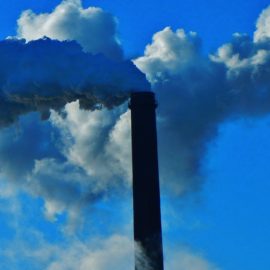
We are now back to the way it used to be. And in this case it is a good to be back.
In the latest reversal of a Trump-era policy, the Biden administration’s Environmental Protection Agency is restoring a rule that grants states and Native American tribes authority to block pipelines and other energy projects that can pollute rivers, streams and other waterways. A provision of the Clean Water Act gives states and tribes power to block federal projects that could harm lakes, streams, rivers and wetlands within their borders. But the Trump administration curtailed that review power after complaints from Republican members of Congress and the fossil fuel industry that state officials had used the permitting process to stop new energy projects.
apnews.com
Trump took this power away so industry could fast-track their oil and industry plans. Washington and New York blocked plans because of waterways so the Trump administration took this ability away from the state.
In a statement to The Associated Press, EPA Administrator Michael Regan said the nation has “serious water challenges to address,″ adding that he “will not hesitate to correct decisions that weakened the authority of states and tribes to protect their waters.″ Regan vowed to work with state, tribal and local officials to protect clean water while encouraging “sustainable economic development and vibrant communities.″ The Trump-era rule will remain in place while the EPA develops a revised rule, Regan said, but the agency “will continue listening to states and tribes about their concerns … to help address these near-term challenges.″ Regan called restoration of the Section 401 provision an important step to reaffirm the authority of states and tribes to regulate projects that affect water quality within their borders. Under the provision, a federal agency may not issue a license or permit to conduct any activity that may result in any discharge into navigable waters unless the affected state or tribe certifies that the discharge is in compliance with the Clean Water Act and state law, or waives certification.
Washington State was quick to applaud this action.
A spokesperson for Washington Gov. Jay Inslee, whose state was targeted by the Trump administration rule, said Inslee was “pleased the Biden-Harris administration recognizes that states have the expertise to uphold water quality standards and is reconsidering the Trump administration’s politically-motivated, flawed rule.″ The spokesperson, Tara Lee, said Washington state “will work to help shape a final rule that protects the health of our communities and environment.″ In the meantime, the state encourages the EPA to issue interim guidance that will allow states, tribes and federal agencies to work together “to fully protect our nation’s waters,″ she said.
Environmentalists were also thrilled and were glad to see the States and tribes back in action.
The action should allow states and tribes to “protect their waters from potentially damaging federally permitted projects like dams, mines and pipelines,” said Jim Murphy of the National Wildlife Federation. He urged the EPA to “take the next logical step and move swiftly to repeal” a Trump-era rule on clean water that Murphy said “has stripped thousands of waters of Clean Water Act protections.″ The water rule — sometimes referred to as “waters of the United States,” or WOTUS — addresses federal jurisdiction over streams and wetlands and has been a point of contention for decades. Regan has pledged to issue a new rule that protects water quality while not overly burdening small farmers.
We are back to having the leader of the EPA to be one who believes in the EPA and the environment.



